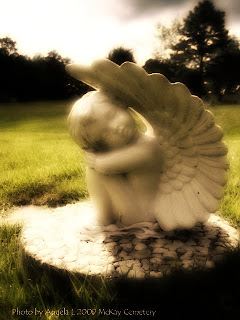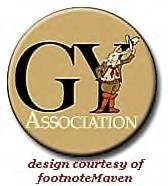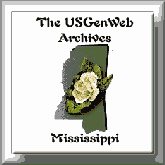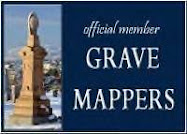Many people looking for information on their ancestors skip right past the death record, heading in a beeline for information on the individual's marriage and birth. Sometimes we already know where and when our ancestor died, and figure it's not worth the time and money to track down the death certificate. Another scenario has our ancestor disappearing between one census and the next, but after a half-hearted search we decide it's not worth the effort since we already know most of his other vital facts. Those death records, however, can tell us much more about our ancestor than where and when he died!
Death records, including death certificates, obituaries and funeral home records, can include a wealth of information on the deceased, including the names of their parents, siblings, children and spouse; when and where they were born and/or married; the occupation of the deceased; possible military service; and cause of death. All of these clues can be helpful in telling us more about our ancestor, as well as leading us to new sources of information on his life.
Date & Place of Birth or Marriage
Does the death certificate, obituary or other death record give a date and place of birth? A clue to the spouse's maiden name? Information found in death records can often provide the clue you need to locate a birth or marriage record.
More: Free Online Marriage Records & Databases -http://genealogy.about.com/od/marriage_records/tp/marriages_online.htm
Names of Family Members
Death records are often a good source for names of parents, spouse, children and next of kin. The death certificate will usually list at least the next of kin or the informant (often a family member) who provided the information on the death certificate, while an obituary notice may list numerous family members - both living and deceased.
More: Cluster Genealogy: Researching the Whole Family -http://genealogy.about.com/od/basics/a/cluster.htm
Occupation of the Deceased
What did your ancestor do for a living? Whether they were a farmer, an accountant or a coal miner, their choice of occupation probably defined at least a part of who they were as a person. You may choose to just record this in your "interesting tidbits" folder or, possibly, follow up for further research. Certain occupations, such as railroad workers, may have employment, pension or other occupational records available.
More: Glossary of Old Occupations and Trades-http://genealogy.about.com/library/glossary/bl_occupations.htm
Possible Military Service
Obituaries, tombstones and, occasionally, death certificates are a good place to look if you suspect that your ancestor may have served in the military. They will often list the military branch and unit, and possibly information on rank and the years in which your ancestor served. With these details you can then look for further information about your ancestor in military records.
More: Abbreviations & Symbols Found on Military Tombstones -http://genealogy.about.com/od/military_records/a/tombstone.htm
Cause of Death
An important clue for anyone compiling a medical family history, the cause of death can often be found listed on a death certificate. If you can't find it there, then the funeral home (if still in existence) may be able to provide you with further information. As you go back in time, however, you'll begin to find interesting causes of death, such as "bad blood" (which often meant syphilis) and "dropsy," meaning edema or swelling. You may also find clues to newsworthy deaths such as occupational accidents, fires or surgical mishaps, that could lead to additional records.
More: All in the Family - Tracing Your Family Medical History -http://genealogy.about.com/od/health_history/a/medical.htm
In addition to these five clues, death records also offer information that may lead to further research avenues. A death certificate, for example, may list the burial place and the funeral home - leading to a search in cemetery or funeral home records. An obituary or funeral notice may mention a church where the funeral service is being held, another source for further research. Since about 1967, most death certificates in the United States list the deceased's Social Security number, which makes it easy to request a copy of the original application (SS-5) for a Social Security card, full of genealogical details.
Other Sources:
http://genealogy.about.com/od/cemetery_records/a/cemeteries.htm
http://genealogy.about.com/od/death_records/a/funeral_home.htm
http://genealogy.about.com/od/vital_records/a/ssdi.htm























